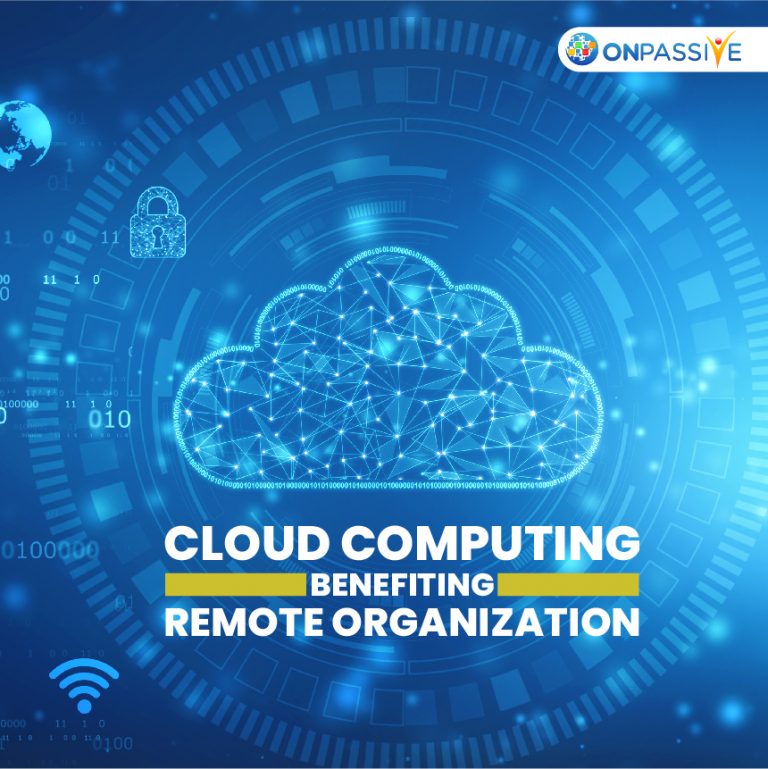
As the economy reopens, many people return to the workplace under safety circumstances. Because COVID-19 has dramatically impacted the recent business market, lockdowns and isolations have pushed millions of people to work from home. Around 74% of Chief Financial Officers (CFOs) have planned to move 5% to remote positions permanently.
This is one of the primary reasons why there has been a rise in cloud computing among remote workers. As most organizations are data enterprises, a large percentage of organizations work remotely. Cloud computing accesses all kinds of data to the employees and enables them to work effortlessly.
Cloud Computing is a delivery of services through the internet. The services include applications and tools like software, servers, databases, storage and networking. Cloud computing can be used through any device with access to data and software programs to run it.
Types of cloud computing
There are three different types of cloud computing models and services for various organizations.
- Public cloud
- Private cloud
- Hybrid cloud
Remote Organization is also called remote work, a working style that allows professionals and employees to work outside the traditional work environment.
Cloud Computing helps remote workers to connect and collaborate with other team members comfortably. Many small to large enterprises can witness a rise in their operational efficiencies with all the information right on their finger-tips. One need not wait for IT to deliver data as Cloud Computing has made it possible for everyone to access it. All these services are carried out by cloud administrators, who are responsible for working in a mixed software environment and cloud infrastructure services.
Here are some reasons why remote organizations are turning to cloud computing services:
- Cost– Cloud Computing for remote organizations not just eliminates the capital expense of buying and setting up hardware and software but also saves time, space and efforts to manage the infrastructure.
- Global Scale– It’s the ability to scale services across the globe. It provides the right amount of resources such as storage, bandwidth and computing power when it is needed across the globe.
- Productivity– It removes all hardware setup and IT management chores and focuses on achieving more business goals.
- Performance– It regularly updates to the latest generation of quick and efficient computing services.
- Speed– With just a few clicks, many computing resources can be provisioned in just a few minutes.
- Security– It offers a broad set of policies and technologies and helps control your data, apps, potential threats, and the infrastructure covering your security.
- Reliability-It helps back up data, recover disasters, and have business continuity.
BENEFITS OF CLOUD COMPUTING FOR REMOTE WORKERS
Apart from saving money and improving your business workflow, cloud computing helps your organization achieve ultimate outcomes through the remote work culture.
- System scaling:
- It invites a large number of workers from different areas and locations. Using cloud computing gives access to the organization’s data and services and requires scaling your system.
- For In- House scaling, an organization must install additional servers, memory and CPU’s to serve the employees’ requirements.
- An organization can be up-scaled or downscaled anytime in a cost-effective manner. Hardware requirements can be added by renting or removed based on the need of the organization.
- Collaboration:
- One of the advantages of cloud computing to a remote worker is that it helps collaborate and edit without barriers. Google Docs and Dropbox Docs are some of the tools that collaborate with the cloud.
- Team members can now work on the same document at the same time without any trouble.
- Also, cloud computing offers inbuilt tools that connect users and helps communicate with each other. Thus, it helps coordinate and create integrated work while accessing data on cloud servers.
- Improved accessibility:
- It allows remote workers access to information whenever they need it.
- Administrators can also give permissions for data and secure authentication.
- An organization can restrict confidential data and offer access to only those people with passwords and secured permissions.
- Offline mobility:
- Microsoft Azure, AWS, Amazon are a few cloud computing services for remote organizations that offer effortless mobility to remote workers.
- Through Cloud Computing, remote workers can download and access the files when unsure of the internet connection.
- One need not carry the device or storage consisting of the files. It can easily be stored in the cloud that can later be used and deleted when done.
SUMMING UP
Cloud Computing is a secure way for remote workers to work in an organization. It’s a secure way to move your business to flexible work culture. As it is designed with cyber-security, it offers both dedicated servers with complete security and shared resources.


